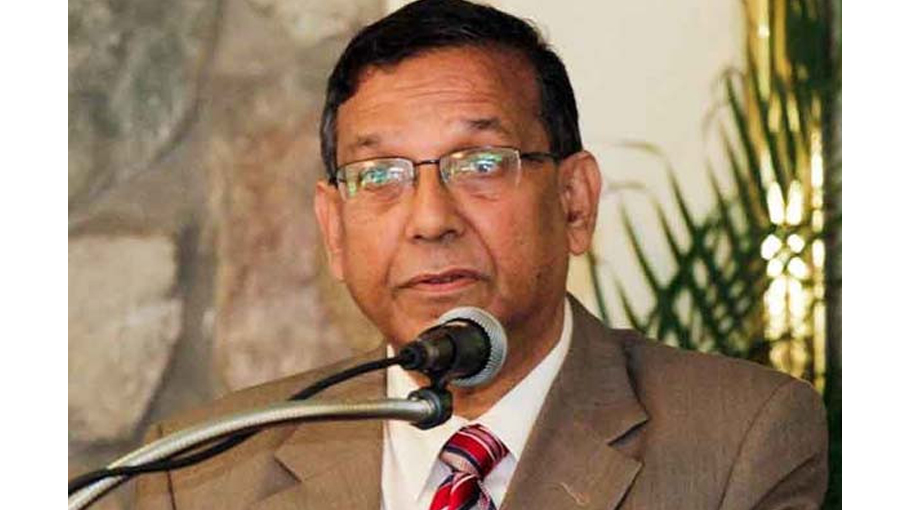Move to update Evidence Act
Digital records to be used as evidence

The government has made a move to amend the ‘Evidence Act, 1872’ for overcoming the challenges to introduce digital evidence in the justice system.
The move has also been made to cancel some controversial provisions, including the provision that allows questioning the character of rape victims in court.
The Law Ministry has prepared the draft for amendment of the law which will be finalised after taking opinions from experts and stakeholders. Once the amendment is finalized, there will be an opportunity to take pictures, videos and audio recordings captured through digital devices as evidence in any case, an official of the Law Ministry told the Bangladesh Post on Friday.
Deputy Attorney General Samarendra Nath Biswas placed the draft copy before the High Court bench of Justice Farah Mahbub and Justice SM Maniruzzaman during the hearing in a writ petition on the issue on Thursday. The HC bench fixed February 20 for hearing and passing an order.
On November 14 in 2021, some rights platforms-- Bangladesh Legal Aid and Services Trust, Ain o Salish Kendra (ASK) and Naripokkho-- filed the writ petition.
On November 16, another HC bench wanted to know what steps the government has taken to repeal Section 155 (4) of the ‘Evidence Act, 1872’.
This Section says, “When a man is prosecuted for rape or an attempt to ravish, it may be shown that the prosecutrix was of generally immoral character.”
Barrister Sharmin Akhter Sheuly, lawyer of the writ petition of rights platforms, said that the provision violates various international charters. However, it becomes difficult to punish the culprits in many cases due to the Section 155 (4) of the law.
The ministry thinks that if the amendment of the law is passed, disposal of pending cases will be quick.
Rights activists, experts and lawyers said that the law dates back to the colonial period. Digital records can be applied as evidence in any case.
Some special laws and tribunals, including Cyber Crime Tribunal, Speedy Trial Tribunal Act, the ICT Act and the Digital Security Act, directly instructed for the use of video footage, but not in the general law. For this reason, video footage and several other kinds of digital records can’t be used in various cases.
Five examples given in Section-3 of Evidence Act, 1872 as ‘documents’ don’t include the current digital cameras, video, audio, or any other visual records held on mobile phone sets.
No direct evidence is available in many incidents that include crimes like killing which might have occurred in a remote area. CCTV camera footage and videos captured on mobile phone sets can play an important role as evidence in such cases.
Since the use of electronic devices as evidence is not mentioned in the five documents under the Section, people seeking justice are being deprived of justice during the trial, said Advocate Kamruzzaman, a lawyer in Dhaka.
The law doesn’t guarantee the safety of witnesses. Prosecution fails to produce witnesses in the court in many sensational cases due to lack of proper security. Witnesses receive threats many times. As a result, they don’t want to testify against influential people. So, it is not possible to prove the allegations in many criminal cases in absence of witnesses for which sometimes the real accused are acquitted.
Against this backdrop, digital evidence is very important now to ensure speedy trial and justice.
Attorney General AM Amin Uddin said that amendment of the evidence law would help development of the judiciary. It is a good initiative of the government as many sections of the old law will be repealed.
The people involved in the judicial process, including Supreme Court judges, have long been demanding that the law be amended.
On August 28 in 2019, the special HC bench of Justice Md Shawkat Hossain, Justice Md Ruhul Quddus and Justice ASM Abdul Mobin in observation in a verdict said, the Evidence Act should be made up-to-date or a new law should be enacted to deal with the technological developments as well as electronic records or documents. This is a demand of time after unimaginable development of Information and Communication Technology and its use in commission of various offences.
The-then Chief Justice Syed Mahmud Hossain in 2020 had said that the century-old Evidence Act of 1872 needs to be updated by incorporating the provisions for using digital evidence. The law plays a pivotal role in the effective functioning of the judicial system, and victory or defeat in a case depends mostly on evidential acumen or the lack of it. The Evidence Act is a great piece of law, but it needs to be updated to meet the challenges of 21st century when technology is changing rapidly, he added.



